- About MAA
- Membership
- MAA Publications
- Periodicals
- Blogs
- MAA Book Series
- MAA Press (an imprint of the AMS)
- MAA Notes
- MAA Reviews
- Mathematical Communication
- Information for Libraries
- Author Resources
- Advertise with MAA
- Meetings
- Competitions
- Programs
- Communities
- MAA Sections
- SIGMAA
- MAA Connect
- Students
- MAA Awards
- Awards Booklets
- Writing Awards
- Teaching Awards
- Service Awards
- Research Awards
- Lecture Awards
- Putnam Competition Individual and Team Winners
- D. E. Shaw Group AMC 8 Awards & Certificates
- Maryam Mirzakhani AMC 10 A Awards & Certificates
- Two Sigma AMC 10 B Awards & Certificates
- Jane Street AMC 12 A Awards & Certificates
- Akamai AMC 12 B Awards & Certificates
- High School Teachers
- News
You are here
Mathematical Treasure: Three Books by Simon L'Huilier
Simon L’Huilier (1750-1840) was a Swiss mathematician remembered for his contributions to the fields of mathematical analysis and topology. He was the first mathematician to use the abbreviation “lim” for “limit” in the mathematical sense. In 1786, he won the gold prize offered by the Berlin Academy of Sciences for his work on the foundations of calculus. This work was published as a book, Exposition élémentaire des principes des calculs supérieurs (Elementary exposition of the principles of the higher calculus), in 1786.
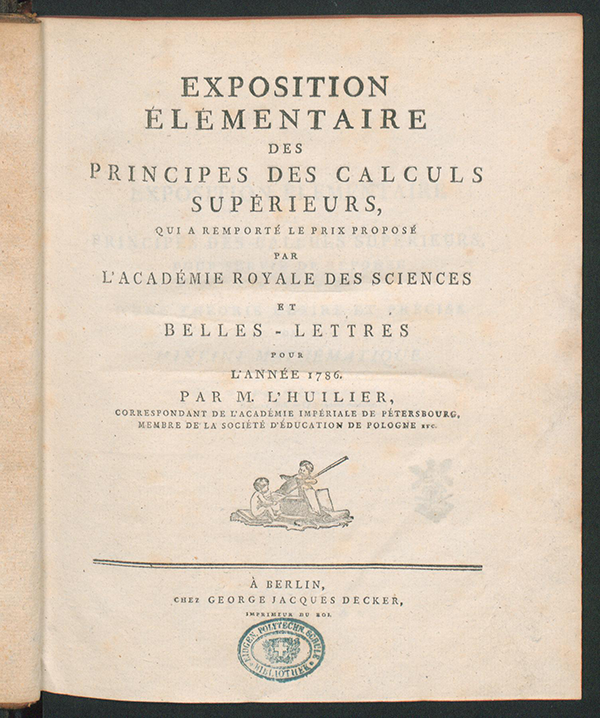
In his “Introduction,” L’Huilier discussed his research.
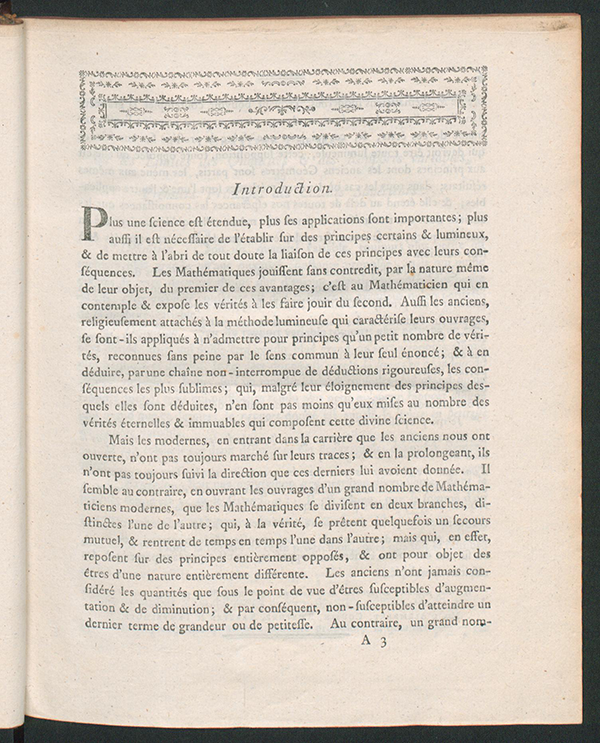
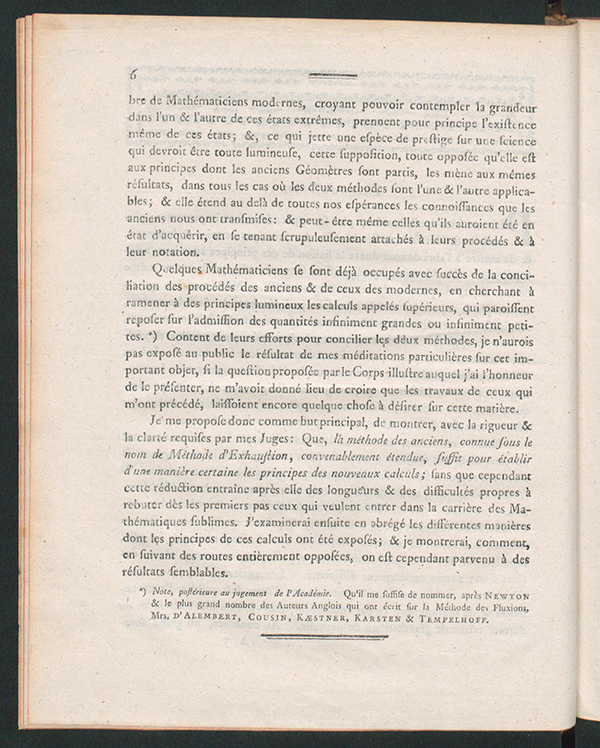
The text begins with appropriate definitions.
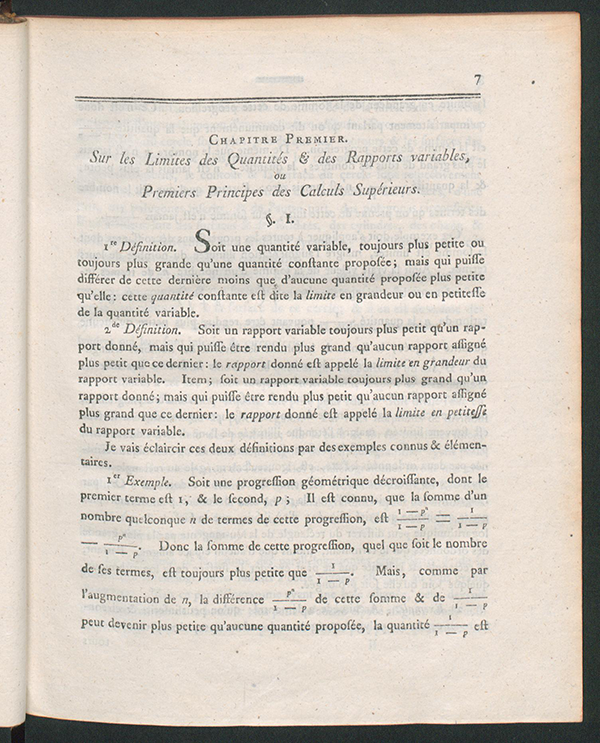
In 1804, L’Huilier published Élemens raisonnés d’algèbre (Reasoned elements of algebra) for the use of his students. The professor’s pedigree of honors covers much of the title page.
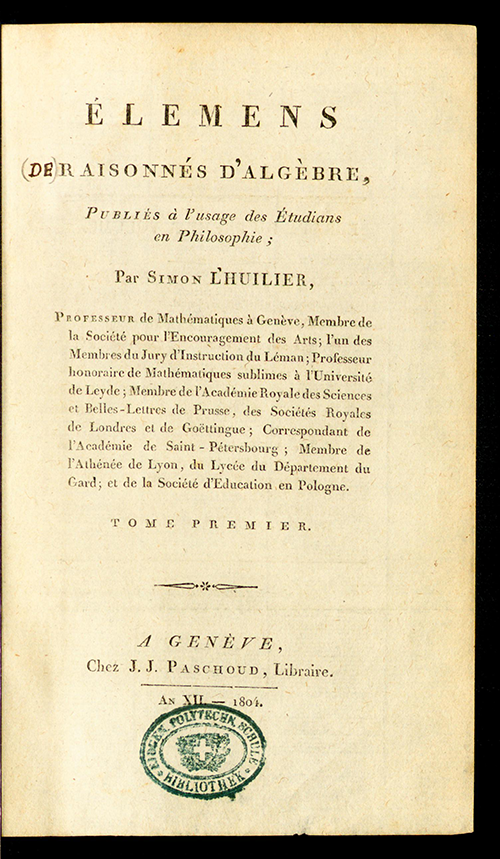
L'Huilier's opening comments supply a rationale for the study of algebra.
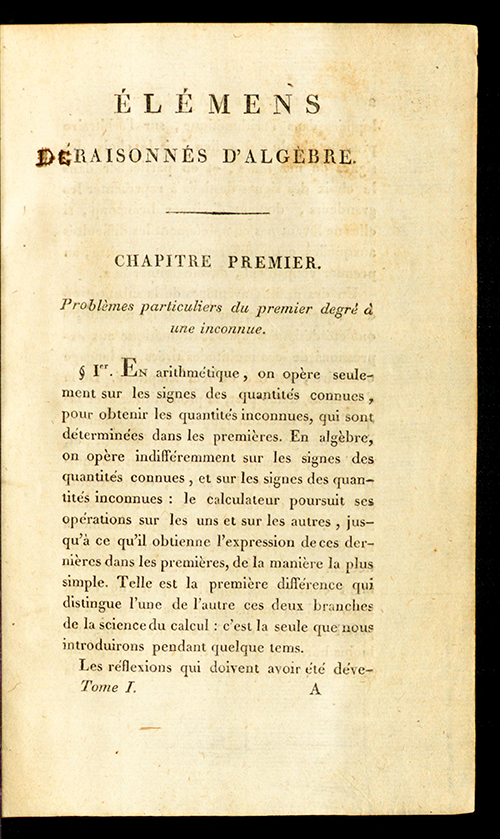
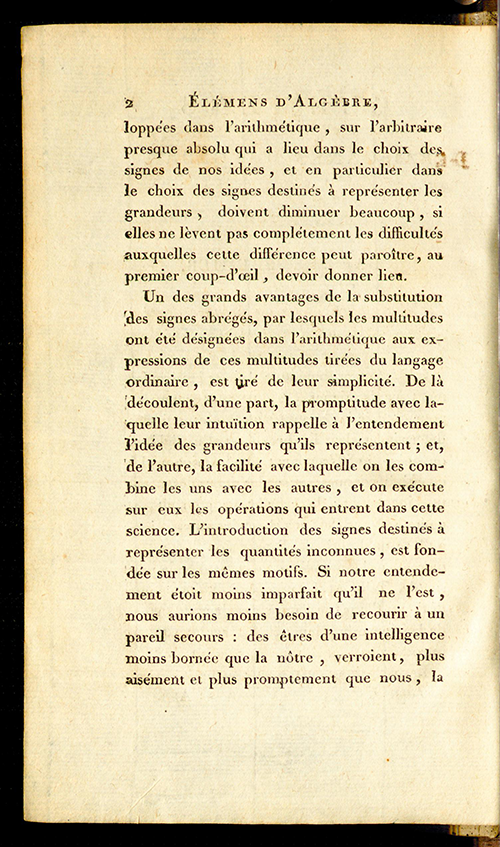
The examples and explanations are clear and concise.
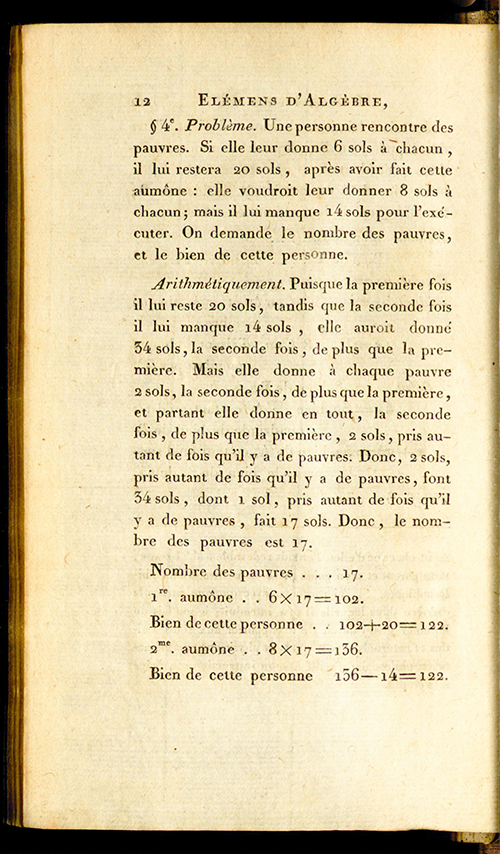
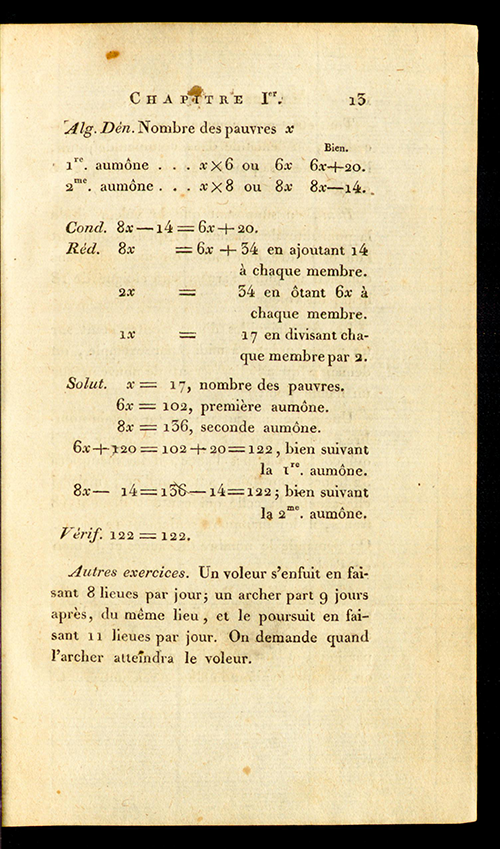
In 1809, Simon L’Huilier published his Élémens d’analyse géométrique et d’analyse algébrique (Elements of geometric and algebraic analysis) in which he discussed the applications of mathematics to geometric spaces.
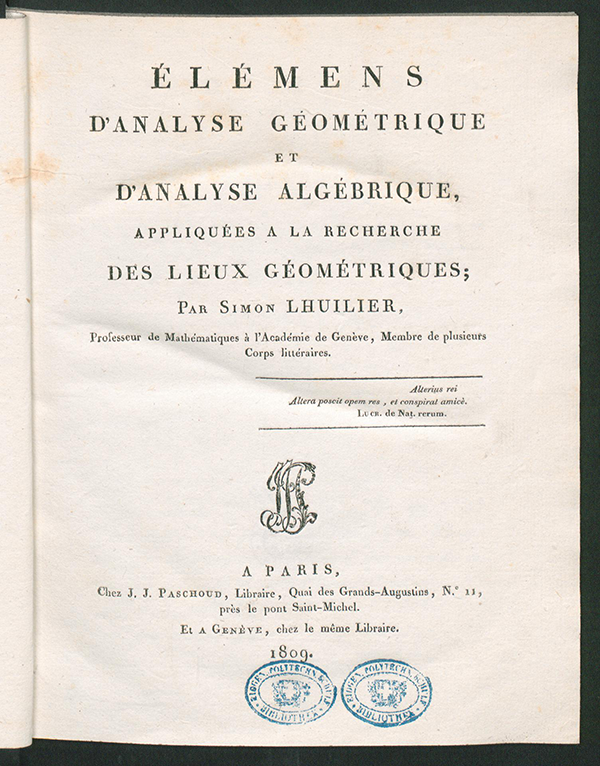
The first three pages of the author’s preliminary comments are examined here.
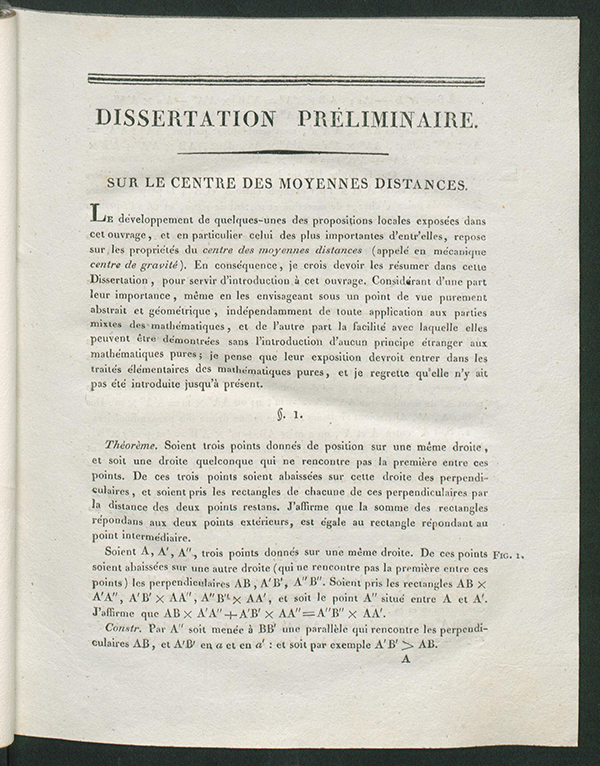
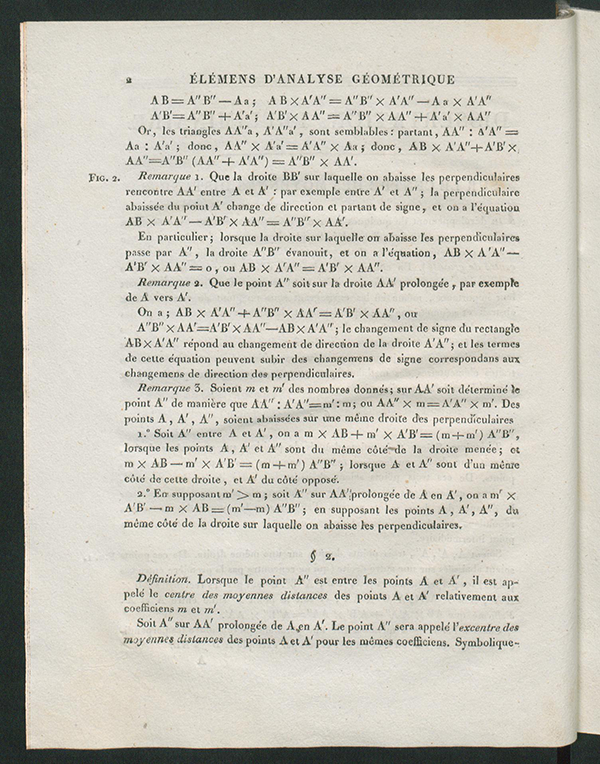
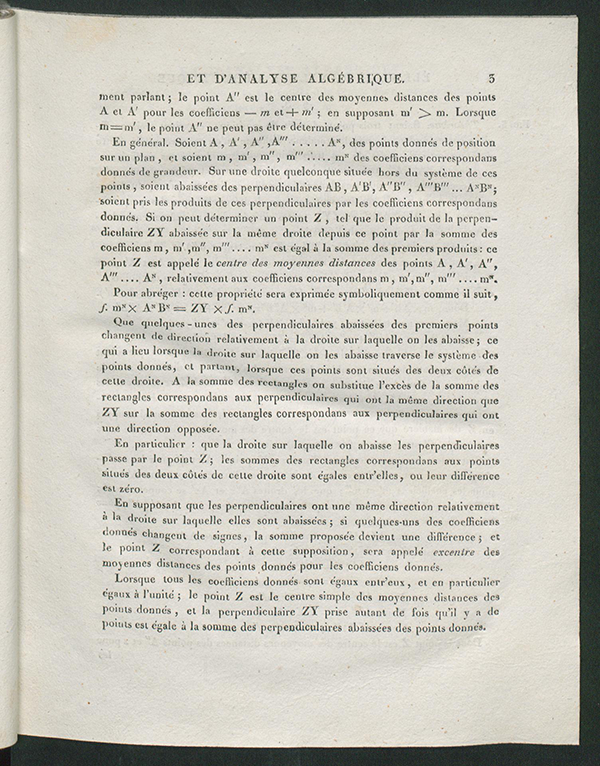
The images above were obtained through the courtesy of e-rara, where each of the three works may be viewed in their entirety.
Frank J. Swetz (The Pennsylvania State University), "Mathematical Treasure: Three Books by Simon L'Huilier," Convergence (August 2018)




